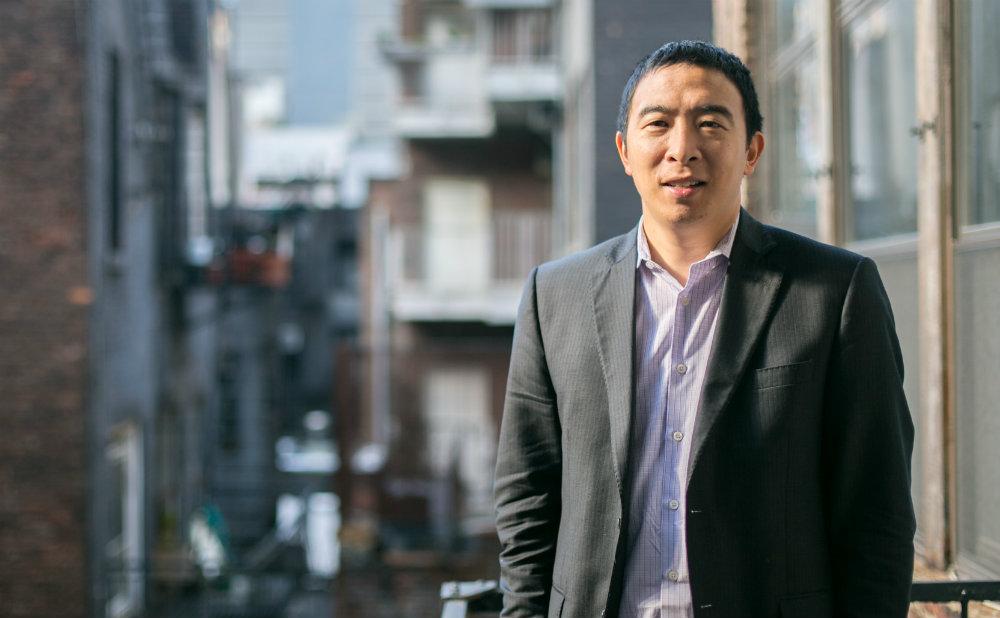NEW YORK—Ex-corporate lawyer and serial entrepreneur Andrew Yang describes rock bottom as scarfing down free bread samples at Cosi and showering at the gym while owing $100,000 in student loans from Columbia Law School.
When his parents questioned him, what he read between the lines was, “Didn’t you used to be smart?”
He had quit work at a law firm to start a business that collapsed in less than two years. It was Yang’s first attempt at entrepreneurship and it was discouraging.
The whole ordeal revealed to Yang, 39, how difficult it was for a college graduate to veer into entrepreneurship. The established tracks limit most grads to Wall Street, Silicon Valley, or academia.
Later, while teaching math to a group of graduates, Yang began observing the brain drain, an economic problem that plagues the country. Top graduates were heading straight into the finance and tech industries in California and New York, leaving their hometowns bereft of their talents.
Recruiters slip through the ranks and snatch up these grads, offering them stable jobs before they’ve even had a chance to consider other options.
Yang’s observations and experiences ultimately sparked a game-changing opportunity for college graduates, distressed cities, and the U.S. economy alike.
Three years ago, Yang founded the nonprofit Venture for America (VFA). He had a vision that VFA would allow young 20-somethings to join and create startups with a support system in place for them to fall back on if the startups didn’t succeed.
Furthermore, instead of sticking to Wall Street and Silicon Valley, these graduates would make their marks in cities like Detroit, Baltimore, and Providence, R.I., where the need for them is greater.
“I’ve had so many opportunities and made so many amazing friends,” said Max Nussenbaum, a 2012 Venture fellow who now works in Detroit as the CEO of Castle, a property management company. He majored in creative writing at Wesleyan College. “[Before Venture] I would have been living in a box on the street before I would have done management consulting.”
Presently, Venture for America has 1,500 grads competing for 150 spots and an annual budget of about $3 million. The company’s reach has extended to 12 cities, including Miami, Las Vegas, and Cleveland.
Earlier this year, Yang published a book, “Smart People Should Build Things,” which details the company’s path and his own discoveries. In the fall, he received a $25,000 award from the Manhattan Institute, a conservative think tank, for his social entrepreneurship.
In leading the next generation of business people, Yang draws on his own 14 years of business experience and quiet beginnings in Westchester County.






